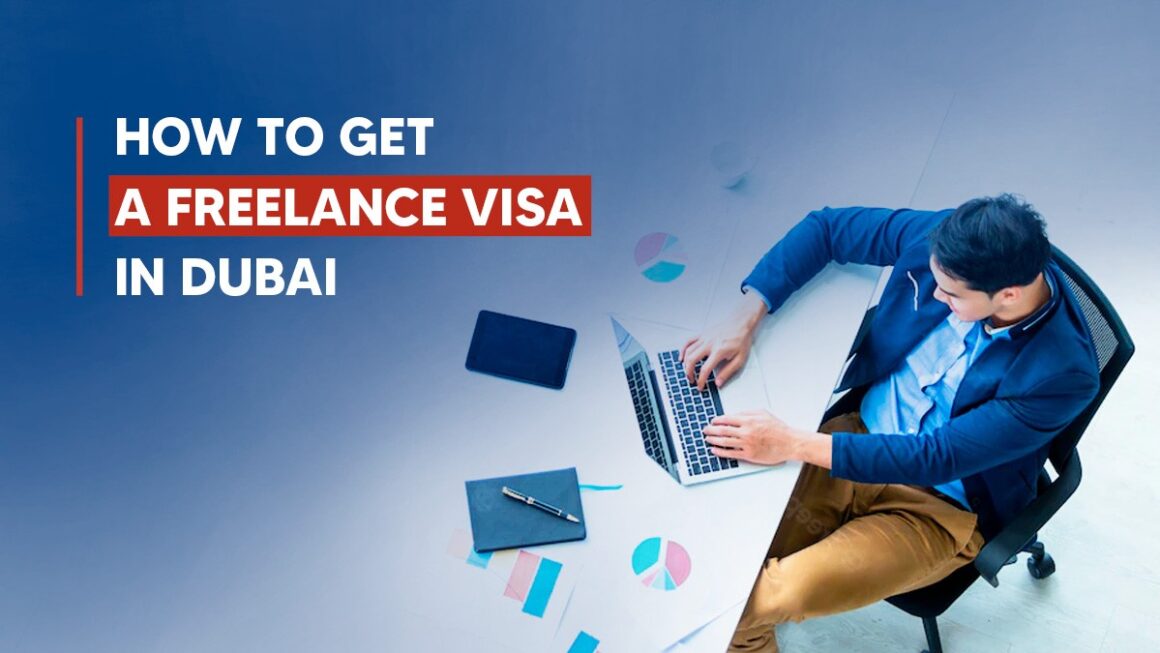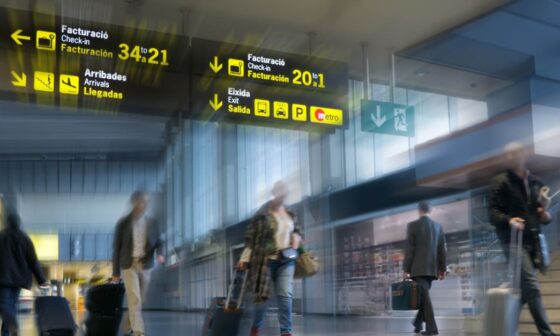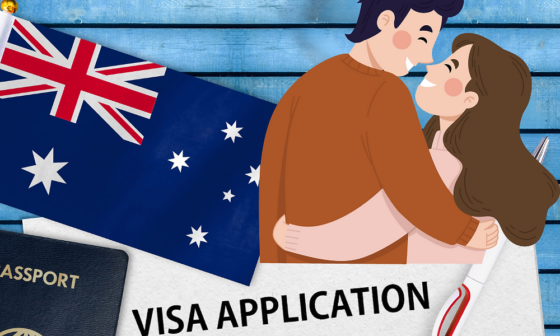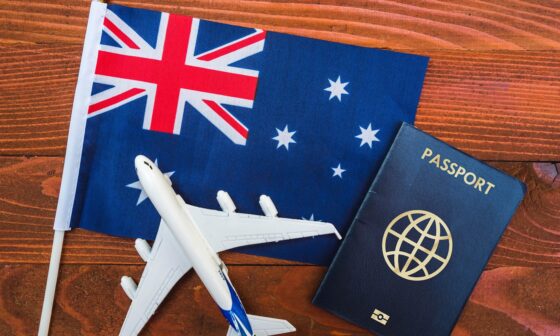Observing a close friend seamlessly transition into freelancing in Dubai, I was struck by the city’s progressive policies that foster independent success for professionals. For creatives, consultants, and professionals from various industries seeking to benefit from tax-free income, global exposure, and a vibrant economy, Dubai’s freelancer visa is an ideal opportunity. If you’ve been wondering how to get a freelancer visa in Dubai, this detailed guide will walk you through the process, supported by stats, personal insights, and actionable steps.
According to the UAE Government’s National Agenda for Vision 2021, Dubai aims to become a global hub for talent, innovation, and entrepreneurship. With over 8.84 million expatriates living in the UAE (Statista, 2023), freelancing has emerged as a popular option for those seeking flexibility and autonomy. Here’s how you can join the ranks of successful freelancers in Dubai.
Why Choose a Freelancer Visa in Dubai?
A freelancer visa offers unique advantages:
- Flexibility: Work with multiple clients without being tied to a single employer.
- Tax-Free Income: Enjoy the UAE’s tax-free income policies.
- Legal Work Status: Operate legally as a freelancer in Dubai.
- Access to Free Zones: Leverage Dubai’s free zones, which provide affordable licensing options.
- Global Opportunities: Network and collaborate with clients worldwide from a prime business hub.
Step-by-Step Guide to Getting a Freelancers Visa in Dubai
#1. Choose a Free Zone
Freelancer visas are typically issued through specific free zones in Dubai, which are designed to cater to professionals seeking independent work. Choosing the right free zone is critical as it determines the licensing options and benefits you’ll receive.
What is a Free Zone?
A free zone is a designated area in the UAE where businesses enjoy tax exemptions, 100% foreign ownership, and simplified setup processes. These zones are tailored for specific industries, allowing freelancers to work legally without needing an Emirati sponsor.
Popular Free Zones for Freelancers:
- Dubai Media City: Perfect for media professionals like journalists, videographers, and graphic designers.
- Dubai Design District (d3): Focused on designers, fashion professionals, and creatives.
- Dubai Knowledge Park: Ideal for education consultants, trainers, and tutors.
- Dubai Internet City: Best for IT professionals, software developers, and digital marketers.
Factors to Consider When Choosing a Free Zone:
- Industry Alignment: Ensure the free zone caters to your profession.
- Cost: Different free zones have varying fees for permits and office space.
- Facilities: Some free zones offer co-working spaces and networking events, which can be valuable for freelancers.
#2. Select Your Professional Category
Dubai’s freelancer visa is limited to specific professions, so it’s essential to confirm your eligibility based on your line of work. Free zones categorize professions into distinct fields.
Eligible Professional Categories:
- Media: Includes writers, editors, photographers, filmmakers, and content creators.
- Technology: Covers programmers, IT consultants, software developers, and cybersecurity experts.
- Education: Suitable for trainers, academic consultants, and private tutors.
How to Check Your Eligibility:
Visit the official website of the free zone you’re considering. Each free zone lists the supported professions for freelance permits. If your profession isn’t listed, consider another free zone or reach out to their support team for clarification.
#3. Apply for a Freelance Permit
The freelance permit is a prerequisite for applying for the freelancer’s visa. It officially registers you as a freelancer within the chosen free zone.
Steps to Apply for a Freelance Permit:
- Submit the Application: Most free zones have an online portal where you can begin the application process.
- Provide the Required Documents:
- Passport copy (valid for at least 6 months).
- Passport-sized photograph with a white background.
- Updated resume detailing your professional experience.
- Portfolio or proof of work experience (for creative or technical roles).
- Pay the Permit Fees: Freelance permits generally cost AED 7,500–15,000 annually ($2,000–$4,000), depending on the free zone and profession.
Processing Time:
Freelance permits are usually issued within 5–10 business days after submitting the required documents and payment.
#4. Apply for the Freelancers Visa
After obtaining the freelance permit, the next step is to apply for the freelancer visa, which grants you residency in Dubai.
Advertisements
Documents Required:
- Freelance permit issued by the free zone.
- Medical test results (clearance from authorized clinics).
- Emirates ID application form.
- Visa application form, filled and signed.
Additional Costs:
The total cost of a freelancer’s visa, including the permit, medical tests, and visa stamping, typically ranges from AED 15,000–25,000 ($4,000–$6,800), depending on the free zone and duration of the visa.
Visa Validity:
Freelancer visas are usually valid for 1–3 years, depending on your permit and free zone policies. They can be renewed upon expiration.
#5. Complete the Medical Test and Emirates ID Process
To finalize your freelancer’s visa, you’ll need to pass a medical test and apply for an Emirates ID.
Medical Test:
Conducted at government-approved clinics or hospitals, the test includes:
- Blood Test: Screening for communicable diseases like HIV and hepatitis.
- Chest X-Ray: Ensures you’re free from tuberculosis.
Processing Time: Results are typically available within 24–48 hours.
Emirates ID Application:
After passing the medical test, apply for the Emirates ID.
Advertisements
- Biometric Scanning: You’ll need to provide fingerprints and have your photo taken.
- Processing Time: The Emirates ID is usually issued within 7–10 days, but you’ll receive a temporary document in the meantime.
#6. Residency Visa Stamping
The final step is to get your residency visa stamped in your passport, officially allowing you to live and work in Dubai as a freelancer.
Steps to Stamp the Visa:
- Submit all required documents, including your passport, Emirates ID application receipt, and freelance permit.
- Your free zone will process the visa application through the General Directorate of Residency and Foreigners Affairs (GDRFA).
- Once approved, the visa is stamped in your passport.
Completion Time:
Visa stamping typically takes 2–5 business days. After this, you are officially a resident of Dubai and can begin freelancing legally.
Pro Tips for Success:
- Plan Financially: Freelance permits and visas are an investment. Ensure you have enough savings to cover initial costs and a buffer for 3–6 months.
- Build a Strong Portfolio: Many free zones require proof of experience or a portfolio to approve freelance permits.
- Utilize Free Zone Resources: Take advantage of co-working spaces, networking events, and mentorship programs offered by your free zone.
By following these steps, you’ll have a clear path to obtaining a freelancer visa in Dubai and starting your journey as an independent professional in one of the world’s most dynamic cities.
Alternative Visa Options
If you don’t qualify for a freelancer visa in Dubai, other visa options may better suit your needs. Here are three popular alternatives:
#1. Golden Visa
The Golden Visa is a long-term residency visa designed for highly skilled professionals, investors, entrepreneurs, and exceptional talents.
Eligibility
- Investors with a significant stake in UAE-based businesses or properties.
- Scientists, researchers, or specialists in fields like AI, medicine, and space technology.
- Students and graduates with exceptional academic performance from UAE universities.
Duration: Valid for 5–10 years and renewable.
Benefits:
- Long-term residency without needing a local sponsor.
- Ability to sponsor family members for the same duration.
How to Apply: Submit your application through the UAE’s Federal Authority for Identity and Citizenship (FAIC) or designated free zones.
#2. Remote Work Visa
The Remote Work Visa allows professionals to live in Dubai while working remotely for a company based outside the UAE.
Eligibility:
- Proof of employment with a minimum monthly salary of $5,000.
- Valid employment contract from your employer.
- Health insurance covering the UAE.
Duration: Valid for 1 year and renewable.
Benefits:
- Enjoy Dubai’s quality of life without relocating your business.
- Access to banking, telecom services, and other resident benefits.
How to Apply: Applications are managed by Dubai’s Virtual Working Program.
#3. Business Setup Visa
A visa for entrepreneurs who wish to establish and operate their own companies in Dubai.
Eligibility:
- Must establish a company in one of Dubai’s free zones or mainland.
- Fulfill capital requirements as specified by the free zone authority.
Duration: Typically valid for 1–3 years.
Benefits:
- 100% ownership of your business in free zones.
- Flexibility to hire employees and expand operations.
How to Apply: Contact a free zone authority or use a business consultancy firm to guide you through the setup and visa process.
Post-Visa Opportunities
After obtaining a freelancer’s visa, freelancers can take several steps to maximize their opportunities and grow their careers in Dubai.
#1. Expanding Their Business
- Networking: Leverage Dubai’s vibrant business ecosystem by attending industry events, free zone workshops, and meetups.
- Online Platforms: Use freelancing platforms like Upwork, Fiverr, and LinkedIn to connect with global clients.
- Upskilling: Enroll in local training programs or certifications to enhance your expertise and attract higher-paying clients.
#2. Tax Implications
- Tax-Free Income in Dubai: Freelancers benefit from Dubai’s zero-income tax policy, significantly boosting their take-home pay.
- Home Country Obligations: If your home country taxes global income (e.g., the U.S.), consult a tax advisor to ensure compliance.
- Explore double taxation agreements between your country and the UAE to minimize tax liabilities.
#3. Leveraging Resources
- Free Zone Benefits: Many free zones offer resources like business directories, mentorship programs, and discounted co-working spaces.
- Professional Development: Participate in workshops and events hosted by your free zone to improve skills and stay updated on industry trends.
- Local Communities: Join professional associations or online groups specific to your industry to gain visibility and new opportunities.
Tips for Renewal and Maintenance
Maintaining your freelancer visa requires regular renewals and adherence to UAE regulations.
#1. Renewal Requirements
Documents Needed
- Valid passport.
- Emirates ID.
- Updated medical test results.
- Proof of income or work contracts.
Timeline: Renewal applications should be submitted at least 30 days before expiration to avoid penalties.
#2. Cost of Renewal
- Freelance Permit Renewal: AED 7,500–15,000 annually ($2,000–$4,000), depending on the free zone.
- Visa Renewal Fees: AED 3,000–5,000 ($800–$1,400).
#3. Ongoing Obligations
- Maintaining a Valid Emirates ID: Ensure your Emirates ID is renewed alongside your visa.
- Annual Permit Renewal: Freelance permits must be renewed every year through the issuing free zone.
- Compliance with Free Zone Rules: Abide by the free zone’s policies to retain your permit and visa.
FAQs About Dubai’s Freelancers Visa
What is the cost of a freelancer’s visa in Dubai?
The total cost, including the permit and visa, ranges from AED 15,000–25,000 ($4,000–$6,800), depending on the free zone and visa duration.
Can I sponsor family members with a freelancer visa?
Yes, freelancers can sponsor dependents, including spouses and children, if they meet the minimum income requirement (around AED 4,000 per month).
What professions are eligible for a freelancer visa?
Eligible professions include:
- Media: Journalists, editors, photographers.
- Technology: Web developers, IT consultants.
- Education: Tutors, trainers, and consultants.
What are the tax implications of freelancing in Dubai?
Dubai offers tax-free income, but you may still have tax obligations in your home country. Consult a tax advisor for guidance.
Template: Freelancers Visa Application Checklist
| Step | Documents Needed |
| Choose a Free Zone | Research-free zones suitable for your profession. |
| Apply for a Permit | Passport, resume, portfolio, and application fee. |
| Medical Test | Blood test, chest X-ray. |
| Emirates ID Application | Biometric scan, visa application form. |
| Residency Visa Stamping | Freelance permit, medical results, passport stamping. |
How It Helps: This template streamlines your process, helping you track each stage of the application efficiently.
Dubai Freelancer Visa for Specific Professions
Media Professionals
- Focus on building a strong portfolio.
- Dubai Media City offers tailored permits for photographers, journalists, and filmmakers.
Technology Professionals
- Highlight certifications like AWS, Google Cloud, or Microsoft Azure.
- Freelance opportunities abound for web developers, software engineers, and IT consultants.
Educators and Trainers
- Proof of teaching credentials is essential.
- Free zones like Dubai Knowledge Park cater to education professionals.
Post-Visa Steps
#1. Register with a Free Zone Authority
This step ensures compliance with the free zone’s regulations and allows you to operate legally.
#2. Open a Business Bank Account
- Required Documents: Freelance permit, Emirates ID, passport.
- Recommended Banks: Emirates NBD, Mashreq Bank.
#3. Access Workspaces
Many free zones provide co-working spaces, ideal for networking and client meetings.
#4. Find Accommodation
- Short-term rentals: Airbnb or serviced apartments.
- Long-term leases: Dubizzle or Property Finder.
#5. Market Your Services
- Use platforms like LinkedIn, Upwork, and Fiverr.
- Leverage free zone networks to connect with local clients.
Key Takeaways
- A freelancer visa allows professionals to work independently and legally in Dubai.
- Select a free zone that aligns with your profession for smoother processing.
- Costs range from AED 15,000–25,000, covering permits and visas.
- Certain professions, like media, tech, and education, are best suited for freelancing.
- Post-visa steps, including registering with free zones and opening a bank account, are crucial for success.
Conclusion
Dubai’s freelancers visa opens doors to a world of opportunity for independent professionals. If you prepare well, have a clear plan, and have a solid understanding of the process, you can make your dreams of freelancing in Dubai a reality.
Are you prepared to embark on a freelance career in Dubai?
Related Articles
- How to Get a Work Visa for Dubai: Step-by-Step Guide
- Japa Plans? Here’s How to Get a Work Visa Without Stress 2024
- 6 Simple Steps for Nigerians to Get a Canadian Work Visa and Boost Their Careers
- Ultimate Guide to Getting a Spouse Visa Without Stress
- How to Apply for an Australian Tourist Visa for Immigrants—Visa Sponsorship in Australia
Advertisements






